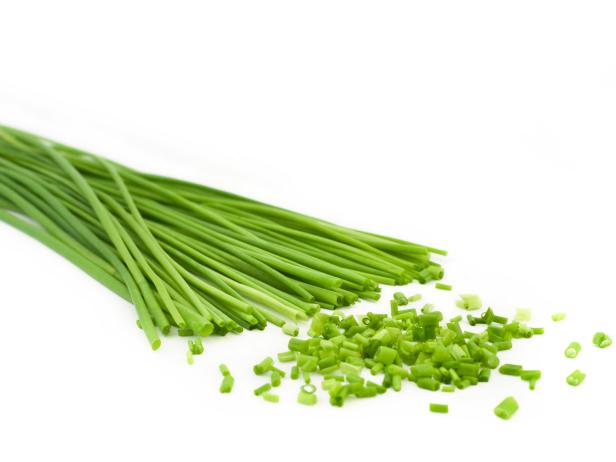
Chives are a type of herb with long, thin green leaves that belong to the onion family. Here’s some information about chives:
Chives Uses: Chives are commonly used as a culinary herb to add a mild onion-like flavor and fresh aroma to dishes. They are often used as a garnish, sprinkled over salads, soups, sauces, and various savory dishes. Chives can also be used in herb butters, dips, and spreads.
Chives Medicinal Uses: Chives have been used in traditional medicine for various purposes, including digestive health, reducing inflammation, and promoting diuresis. However, it’s important to note that traditional uses may not always have scientific evidence to support them.
Chives Side Effects: Chives are generally safe to consume in moderate amounts and are well-tolerated by most individuals. However, some people may be allergic to chives or experience digestive discomfort if consumed in large quantities. It’s advisable to use chives in moderation and consult a healthcare professional if you have any specific concerns or conditions.
Chives Dried: Dried chives are chives that have been dehydrated to remove moisture. They can be used as a convenient alternative to fresh chives and can add flavor to various dishes. However, drying may cause a loss of some of the aromatic compounds and potential health benefits found in fresh chives.
Chives in French: In French, chives are called “ciboulette.”
Chives Meaning: Chives are a type of herbaceous plant with long, slender leaves that have a mild onion flavor.
Chives Restaurant: “Chives” is a term that can refer to a specific restaurant, but it may also be used generically in the culinary world to describe dishes or ingredients that incorporate chives.
Chives Benefits: Chives are low in calories and contain vitamins, minerals, and antioxidants. They are a good source of vitamin K, vitamin C, and folate. Chives also contain certain compounds that may have antibacterial and antifungal properties.
Chives Advantages and Disadvantages: Chives offer a mild onion-like flavor and can enhance the taste of various dishes. They are versatile and can be used in a range of recipes. However, some people may not enjoy the taste or have allergies or sensitivities to chives.
Chives Tea Benefits: Chives tea is not as common as other herbal teas, but it may be consumed for its potential digestive benefits. However, scientific evidence regarding the specific benefits of chives tea is limited, and it’s always advisable to consult with a healthcare professional before incorporating any new herbal teas into your diet.
Benefits of Chives for Skin: Chives contain vitamins and antioxidants that may contribute to overall skin health. However, the specific benefits of chives for the skin may vary depending on individual factors and overall diet and lifestyle.
Chives Vitamins: Chives are a good source of vitamin K, vitamin C, and folate. These vitamins play important roles in maintaining overall health and supporting various bodily functions.
Chives Recipes: Chives can be used in a wide range of recipes, such as salads, soups, omelets, dips, sauces, and herb-infused butters. They can be added as a garnish or incorporated into the cooking process for added flavor.
Are Dried Chives Good for You: Dried chives retain some of the nutritional value of fresh chives, including vitamins and minerals. However, the drying process may cause a loss of certain volatile compounds and potential health benefits found in fresh chives. Fresh chives are generally considered to be more flavorful and nutritious compared to dried chives.
Chives Nutrition: Chives are low in calories and fat. They provide vitamins, minerals, and antioxidants. The specific nutrition profile may vary slightly depending on the variety and preparation of chives.
Chives Noodles: Chives noodles are a type of noodle dish that incorporates chives as a main ingredient. The noodles are often stir-fried with other vegetables and protein for a flavorful and aromatic dish.
Chives Types: There are several types of chives, including common chives (Allium schoenoprasum), garlic chives (Allium tuberosum), and Siberian chives (Allium nutans). Each type has its own distinct flavor and characteristics.
Chives Taste Description: Chives have a mild and delicate onion-like flavor. They are not as pungent as regular onions and provide a subtle, fresh taste to dishes.
Chives Alternative: If chives are not available or you prefer a different flavor, you can consider using other herbs such as green onions, scallions, or even finely chopped shallots as alternatives.
Chives Flowers: Chives produce small, purple or pink flowers. These flowers are edible and can be used as a garnish or added to salads for visual appeal.
Please note that while I strive to provide accurate and up-to-date information, it is always recommended to consult with a healthcare professional or nutritionist for personalized advice and guidance regarding specific health concerns and dietary needs.

